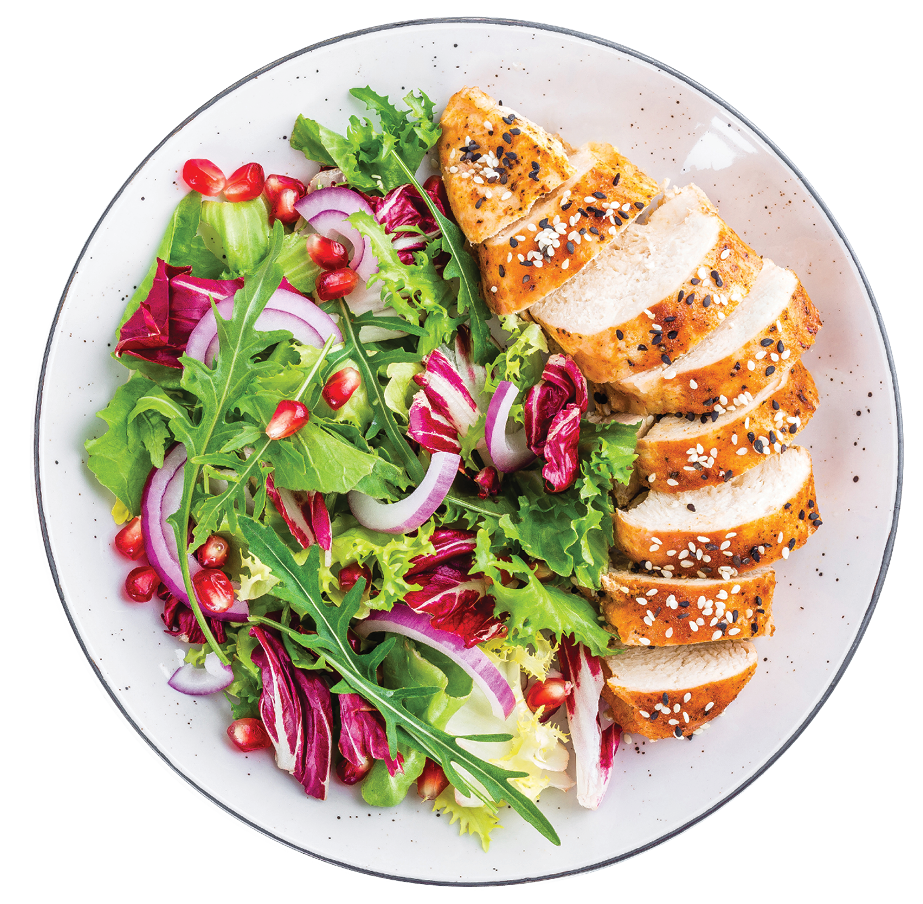
Tips for SMART Health Habits
At the beginning of a new year, we always seem to create resolutions that tend to revolve around diet and exercise. Despite our best intentions, many people fail to reach those goals. However, with spring comes new life and new resolutions: to prioritize wellness throughout the year. Consider these tips for creating healthy, long-lasting habits in 2021:
Tip #1: Think balance and moderation, not deprivation.
All foods can have a place in your diet. Instead of deciding which foods to remove from your diet, think about what you can add to your diet to make it healthier and sustainable. A balanced plate should consist of protein, fruits, vegetables, whole grains and healthy fats. You could sneak some spinach in your morning smoothie or add an extra vegetable to your dinner.
Tip #2: Exercise because you love your body, not because you hate it.
According to the American College of Sports Medicine, healthy adults aged 18-65 years should aim for a minimum of 30 minutes of moderate-intensity aerobic activity at least five days per week, or vigorous-intensity aerobic activity for a minimum of 20 minutes three days per week. Exercising should not be a punishment for indulging in your favorite pizza or grandma’s famous chocolate pie. Instead, it should be a fun activity that you enjoy. If you aren’t sure what type of exercise you like, try different things out! You could swim, bike, dance, run or lift weights. The list goes on! If you don’t like working out alone, invite a friend [follow CDC guidelines for COVID-19] and you can motivate each other.

Tip #3: Don’t fall for diet trends and fads.
We see them on social media, at the grocery store and we even hear about them from friends and coworkers. Detox teas, no carb diets, juice fasts – you name it. Not only can these trends be dangerous for your health, they can also be expensive. Remember, you can’t drastically change your health overnight. It’s a marathon, not a sprint.
Tip #4: Make SMART goals.
SMART is an acronym for Specific, Measurable, Achievable, Relevant and Time-bound. An example of a smart diet goal could be to have a serving of vegetables with lunch and dinner daily for a week. A smart exercise goal could be to walk on your treadmill for 30 minutes for 3 days a week. If you have a general health goal, see if you can break it down to fit the SMART criteria.
Tip #5: Choose foods that you enjoy!
Don’t feel like you must eat foods you despise, just because they’re considered healthy. If broccoli makes your stomach churn, leave it off your plate. Instead, focus on the vegetables you do enjoy. You could even make it a goal to try a new veggie twice a month!
If you plan on making health-related changes in 2021, follow these tips to make sure your goals are realistic and sustainable. When in doubt, consult a Registered Dietitian to help you along the way!
 Emily Faquin, RDN, LDN
Emily Faquin, RDN, LDN
The Tankersley Clinic
thetankersleyclinic.com
901-335-8966
questions@thetankersleyclinic.com







